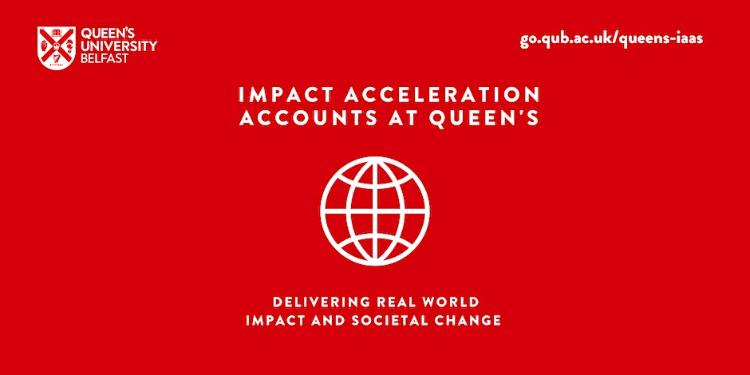Impact and partnerships
The impact of your research is the effect it has on the world we live in. Whatever it is developing new products, practices, or ways of thinking, your research has the potential to address some of the challenges faced by society, the most pressing ones being identified as the United Nations Sustainable Development Goals.
Developing real impact requires planning, time and engaging with partners, often from other sectors like businesses, charities, government bodies etc. This can give you highly transferable understanding, experience and skills that are very helpful to your career development.
This section includes:
- Planning and recording impact
- Partnerships with businesses and external stakeholders
- Impact Acceleration Accounts (including Impact Academy training)
- Commercialisation and entrepreneurship
You may also be interested in:
- Communicating your research to the public (visit the Research dissemination page)
- Developing proposals and strategies (visit the Leadership and vision page)

Impact needs to be planned at the outset of any research project, to ensure that you are addressing the right question, engaging with the appropriate people, and will be able to measure your progress.
The Research Impact Team in the Research Strategy and Engagement Team is here to help you with all of it. They organise a range of events and workshops on embedding engagement in your research, preparing impact case studies for REF, influencing policy with your research etc. These are advertised in the Staff Round-up and PDC communications. They also provide one-to-one impact clinics to discuss your impact activities and plans.
Relevant training and resources:
- Research Impact and Engagement page on the Research and Enterprise Intranet - including a series of videos about research impact, information on Personal and Public Involvement (PPI), the Heritage Hub and where to find impact and engagement funding
- Research Impact and Engagement Toolkit
- Engaged Research and Impact: Why are they important?: training session organised by the PDC
- Impact and Engagement Academy: range of training sessions linked to impact and knowledge exchange
- Personal and Public Involvement (PPI) online course
- PPI Network and Hub: access to a network of PPI professionals and researchers, case studies, resources from all across the island of Ireland
- Agility Fund: provides internal funding to support research activities of Queen's academic and research staff, including for research engagement and impact activities
- Impact of Queen's research
- The National Co-ordinating Centre for Public Engagement (NCCPE)

Translating research often involves partnering with people and organisations who have the means to do it. It can give you insight into a different sector, new connections and open funding streams.
The Business Alliance Team provides support for academics and researchers at Queen's who want to establish partnerships with industry, public bodies and the third sector. They notably host partnering events to help researchers meet potential collaborators in their field of research and provide one-to-one support with funding applications and partnership establishment, including supporting the pricing, contracting and initiation of research collaborations.
Relevant training and resources:
- Business Engagement and Partnering - page on the Research and Enterprise Intranet
- Networking and Profile Building for Researchers workshop
- Networking for Researchers online course on Nature Masterclasses
Impact Acceleration Accounts (IAAs) are big sums of money allocated to universities to allow them to flexibly support impact activities aligned with their research strategy and situation. Queen's holds several IAAs aligned with a range of disciplines. Each IAA offers training and funding opportunities that can be useful to postdocs. For example, they may fund activities to develop new partnerships with external organisations, secondments/fellowships in other sectors, commercialisation projects, dissemination projects etc.

Commercialising your research, through licencing or the creation of a spin-out company is a way to get it to the public, benefit the economy and maybe turn you into a CEO!
The IP and Commercial Development Team helps researchers investigate the commercial potential of their research, how to protect their IP (Intellectual Property) and bring it to market. They organise events, training and programmes around IP and entrepreneurship as well as one-to-ones. The Innovations Programme Team run a number of market discovery programmes which are designed to help researchers refine and validate the commercial potential of their business idea, helping to bridge the gap between University research and the market. Once an idea has been properly protected and commercially validated, the Spinouts and Investment Team are on hand to offer advice on licensing your work or launching a spinout.
Relevant training and resources:
- Commercialising Your Research page on the Research and Enterprise Intranet including information on commercialisation, market validation and IP protection
- Commercialisation at Queen's
- Innovation Programmes: multiple programmes across a range of disciplines are organised each year and include training, mentoring and often funding
- Inventors Guide
- Invention Disclosure Forms
- Considerations for a Spinout Company
- Innovation Newsletter (sign-up for the newsletter)
- QUBIS: the commercialisation arm of Queen's. QUBIS has a strong track–record in creating new technology start–ups and helping commercialise leading–edge technology from the Queen’s research base.
- We Invent: tool to help researchers get early feedback on commercialisation ideas before formally starting the process and submitting an IDF.
- ACCELERATE Potential: online, self-paced, open-access short course covering an introduction to translational research, how to get started, and where to find support
The entrepreneurship programmes and support provided at Queen's only apply to the commercialisation of Queen's research.
If you have an idea of business that does not result from your research, there are other external sources of training and support to help you set-up your enterprise.
Catalyst: Catalyst is an not-for-profit organisation aiming at promoting entrepreneurship in Northern Ireland. Their Co-Funders programme is targetted at individuals or established teams interested in developing new product/service innovation focused on science, technology and engineering.
Belfast city council: the city offers support for people willing to establish their business and social enterprises, including via the Belfast Enterprise Academy.

